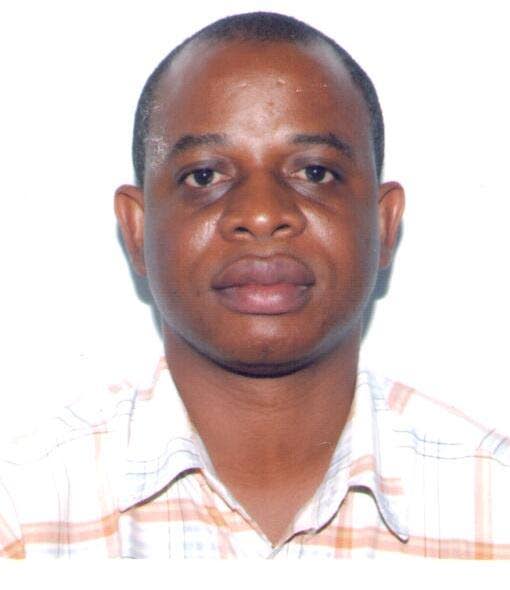Insomnia is a problem

DR MAXWELL ADEYEMI
Sleep disorder is a distressing event in many individuals in which they often have problem falling asleep or problems staying asleep. This is referred to as insomnia.
Insomnia is defined as a disorder in which people have trouble falling asleep or staying asleep, a clinical diagnosis is made if both of these criteria apply: having sleep difficulties occurring at least three nights a week for a minimum of three months and having sleep difficulties creating major distress or functional difficulties in a person’s life.
Insomnia can be short term (acute) and it can be long term (Chronic) or it may be recurrent (may come and go).
Acute insomnia generally lasts for one night to a few weeks while chronic insomnia can last for months.
TYPES OF INSOMNIA
Primary insomnia means that the sleep problem is not linked or caused by any other health condition.
Secondary insomnia – the sleep problem in secondary insomnia is as a result of an existing health condition.
CAUSES OF INSOMNIA
1) Major stress in a person’s life can cause insomnia, these may include job loss, death of loved ones, divorce or any traumatic event.
2) Environmental factors such as noise, bright lights, extremes of temperature.
3) Mental health issues: depression, anxiety and panic attacks are medical issues that can cause sleep disturbances.
4) Alteration in sleep schedules, which may be because of jet lag, shift work.
5) Medical ailments characterised by pains, such as cancers, arthritis.
6) Medications: certain medications can trigger insomnia as side effects such as antihistamine, antidepressants, asthma medications and some high blood pressure medications.
7) Substance abuse such as alcohol, smoking, and consumption of energy drinks and caffeine.
8) Thyroid disorders, especially hyperthyroidism
9) Menopause and other hormonal or endocrine imbalance.
10) Obesity, which is usually associated with sleep apnea.
RISK FACTORS FOR INSOMNIA
Insomnia can affect men and women, young and old and people of any ethnicity and race.
However, individuals with mental illness, long-term and chronic ailments as well as those working night shift for extended period can be more susceptible to insomnia.
SYMPTOMS OF INSOMNIA
Insomnia is usually characterised by difficulty in falling asleep or staying asleep at night, sleepiness during the day, fatigue, grumpiness, poor concentration and memory impairment.
COMPLICATIONS OF INSOMNIA
The body systems and organs depend on sleep to repair itself and function in maximum capacity.
Memory lapses – sleep helps the brain to form vital connections that help to process and remember new information, Lack of sleep can negatively impact both short- and long-term memories.
Mood changes – sleep deprivation can make you moody, emotional and quick-tempered, chronic sleep deprivation may affect your mood in a way that it can lead to anxiety and depression.
Weak immunity – too little sleep weakens the immune system’s defence against viruses and other pathogens and increases your risk of infections.
Poor concentration – your attention, creativity and problem-solving skills are compromised due to poor sleep.
Risk of diabetes – lack of sleep affects the body’s release of insulin, poor sleep will alter glucose metabolism and lead to elevated blood sugar and eventually insulin resistance and diabetes.
Accident – being drowsy during the day because of poor sleep can increase the risk of vehicular accidents and other machinery, thus increasing the chances of injuries.
Hypertension – sleep deprivation can result in elevated blood pressure and increase the risk of heart diseases.
Overweight and obesity – poor sleep impairs the chemicals that signals to the brain that you are full. As a result, you can over eat and over indulge even when you have had enough to eat. This may lead to increase in weigh and obesity.
Low sex drive (libido) – sleep deprivation can lead to decline in levels of testosterone and thus reduce sex drives.
DIAGNOSIS
Tests used to diagnose insomnia may include;
1.Sleep diary – tracking your sleep patterns to have an idea of how you sleep.
2.Epworth sleeping scale – a validated questionnaire that is used to assess daytime sleepiness.
3.Polysomnogram – a test that measures activities during sleep.
4.Actigraphy – a test that assesses sleep-wake patterns over time. Actigraph are small, wrist-worn devices that measure movements.
5.- Mental health examination – insomnia is sometimes a symptom of depression, anxiety and other mental disorders, so a mental health status, mental health history and psychological evaluation may be helpful in making a diagnosis as well as selecting treatment options.
TREATMENT
a) Non-medical therapy – this may involve development of better sleep habit and sleep hygiene. Establish a regular sleep-wake pattern, eliminate bright lights and blue lights from electronics and gadgets.
b) Psychotherapy – use of counselling and other related tools and techniques to manage the problem.
c) Managing underlying medical condition such as depression, diabetes, obesity, menopause.
d) Discontinue or change offending medications (if caused by medicines).
e) Avoid triggers or lifestyle habits such as caffeine, smoking, drugs, energy drinks, alcohol.
f) Use of medications such as tranquillisers (sleeping pills) – a common type are the Benzodiazepines (diazepam, lorazepam, clonazepam, temazepam, flurazepam).
It should be noted however that these sleeping medications are controlled drugs, they can become addictive if taken for extended periods, they can also be dangerous if taken with alcohol or other drugs that depress the central nervous system.
Contact Dr Maxwell on 363-1807 or 757-5411.


Comments
"Insomnia is a problem"